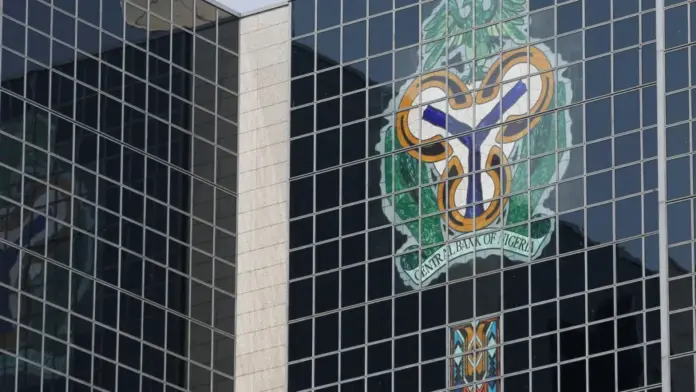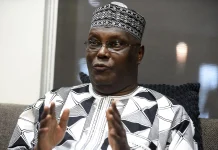As worries about the UK economy and inflationary pressures around the world rise, the Bank of England (BoE) has lowered its benchmark interest rate to 4 percent, the lowest level in two years.
Although it was a widely anticipated move, its implementation was everything from standard, and the ramifications go well beyond British borders, potentially having a big impact on developing nations like Nigeria.
The rate drop, from 4.25 percent, comes as the BoE warns that monetary easing would be gradual and cautious and that inflation, particularly those caused by rising food costs, is still unacceptable. In an unusually circumspect statement, Governor Andrew Bailey said, “We’ve lowered interest rates today, but it was a finely balanced decision.” Interest rates are currently declining, but any rate reductions in the future must be cautious and gradual.
A Vote Never Before Seen And Political Undertones
It was a very controversial rate choice. Following an initial impasse, the Monetary Policy Committee (MPC) had to vote twice for the first time since the BoE became independent in 1997. One member advocated for an even sharper cut, four supported a cut, and four preferred to keep rates in the first round. The 0.25 percentage point drop was finally agreed upon by Bailey using his casting vote.
The political unrest around the tax policies of recently appointed Chancellor of the Exchequer Rachel Reeves, which the BoE believes are fueling inflationary pressure in consumer goods, is part of the vote’s background. According to the bank, rising food costs might cause inflation to double to 4 percent by September, which is twice its aim of 2 percent.
Capital Flows, Policy Space, and Currency Pressures Affecting Nigeria
Even though the BoE’s decision is centered on the country’s internal economy, Nigeria would be affected, particularly as the West African country continues to struggle with capital flight, inflation, and exchange rate volatility.
Adjusting Capital and Investment Attitudes
One of the main sources of foreign portfolio investment in Nigeria’s stock and fixed-income markets is the United Kingdom. When UK interest rates are lowered, yields on British gilts and other sterling-denominated assets decrease as well. This could make Nigerian bonds and stocks more appealing in contrast, at least when risk is taken into account.
The Central Bank of Nigeria (CBN) is keeping interest rates relatively high, now at 25 percent, in an effort to control inflation and stabilize the naira. This could lead to some capital inflows, especially from European investors who are eager for yields.
However, Nigeria’s own economic difficulties, such as a still-fragile currency and ongoing security and infrastructure issues, reduced that appeal. However, a weaker global interest rate environment may at least lessen the external strain on the nation’s already precarious balance of payments.
The Naira and the Dynamics of Exchange Rates
The dovish stance of the BoE may provide some breathing room to the naira, which has experienced many rounds of devaluation in the last year, especially if it leads to a wider round of rate reduction in developed economies. Reduced demand for sterling and consequent currency depreciation could result from lower UK rates, which could lower Nigeria’s import prices for products and services from the UK.
Conversely, considering the sizeable Nigerian diaspora in the UK, any slowdown in the UK economy or increased inflation, especially in food and consumer items, could lower demand for Nigerian exports and remittances.
Household Impact and Diaspora Remittances
Nigerians living in the UK send money home, and this is a vital source of foreign exchange. Remittance volumes may decrease if Nigerian emigrants’ disposable incomes decline or if the BoE’s rate drop is insufficient to prevent a recession or if inflation in the UK worsens. Since millions of Nigerian households depend on those inflows for healthcare, education, and consumption, this would have an immediate impact on them.
Lessons for Policy at the CBN
Additionally, there is the policy signaling angle. Despite a rate drop, the BoE’s cautious tone reflects the balancing act the CBN must likewise do. Although Nigeria has a significantly more severe inflationary situation than the UK, the London message reaffirms that drastic rate reduction may backfire, particularly when prices are rising.
Read Also: FG Cracks Down on Misconduct, Fires 15 Correctional Officers, Demotes 59
To date, Governor Olayemi Cardoso’s CBN has implemented strict monetary policy in an effort to stabilize the currency and control inflation. The country’s relative position could be strengthened if international central banks keep lowering interest rates while Nigeria sticks to its tightening policy, but at the expense of slower domestic credit growth and higher business borrowing costs.
An eroding world economy and caution in the oil market
A slowdown in global growth is indicated by the BoE’s warning of a slowdown in UK economic activity. Consumers are cooling and saving more in anxious households, which may lead to a decrease in energy demand.
Since Nigeria’s income and foreign exchange are mostly derived from the export of crude oil, any decline in the world’s oil demand brought on by slowdowns in developed economies would be a fiscal risk. In recent months, prices have stayed mostly steady, but a decline in forecasts for global growth might push oil prices lower and further reduce Nigeria’s earnings.
Nigeria Needs to Pay Paying Attention
In addition to being a domestic event, the Bank of England’s rate decrease is a component of a larger change in the global monetary landscape. The judgment highlights both potential and risks for Nigeria. Lower foreign interest rates have the potential to reduce capital constraints and enhance the relative returns for Nigerian assets. On the other hand, there are significant challenges due to declining remittance flows, sluggish demand, and growing global prices.
Nigerian policymakers, both monetary and fiscal, need to continue to be flexible. With a central bank decision in London having an effect on people’s wallets in Lagos, they will have to address not only domestic issues but also the increasingly intricate and interwoven global economic landscape.
Join Television Nigerian Whatsapp Now
Join Television Nigerian Facebook Now
Join Television Nigerian Twitter Now
Join Television Nigerian YouTUbe Now





